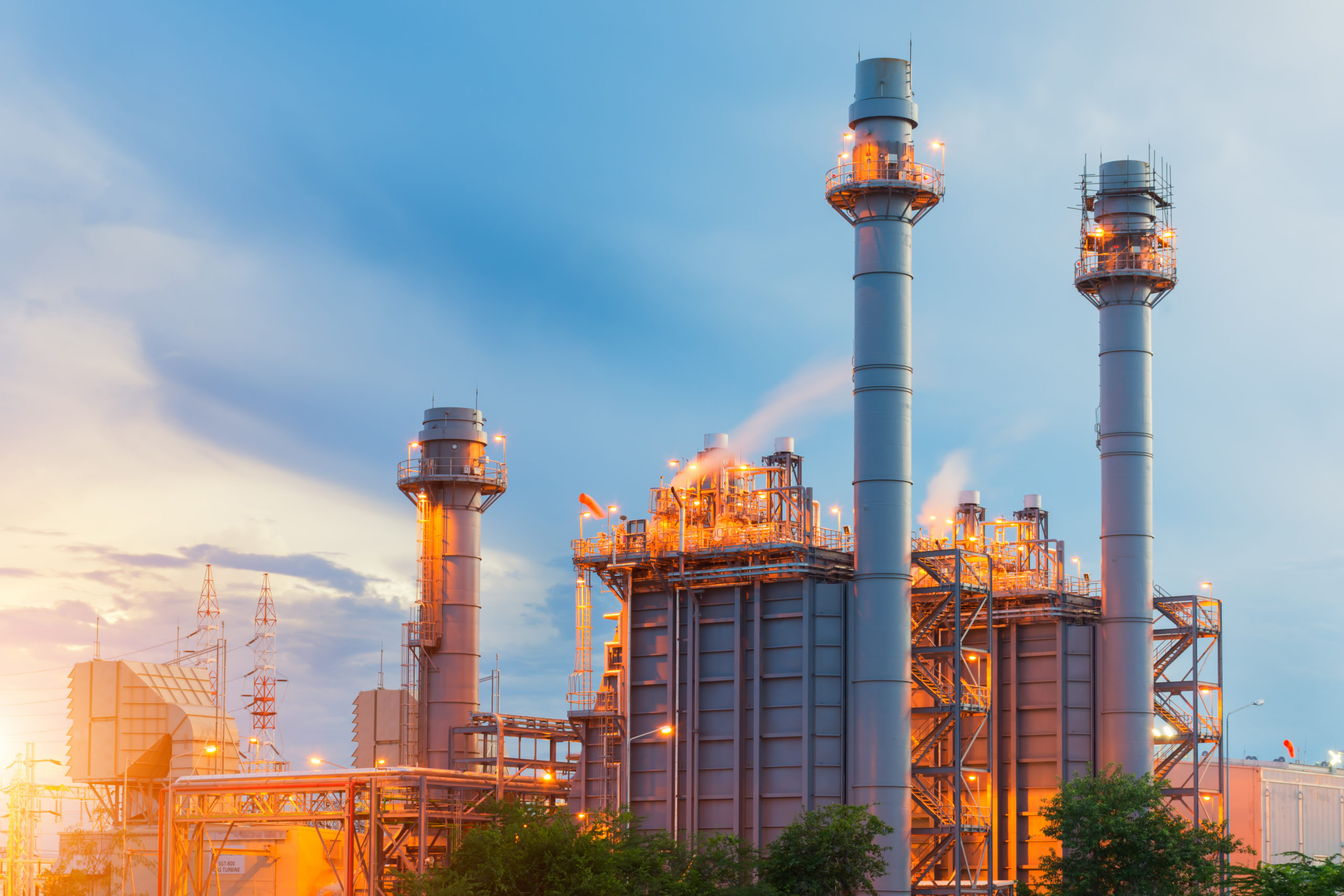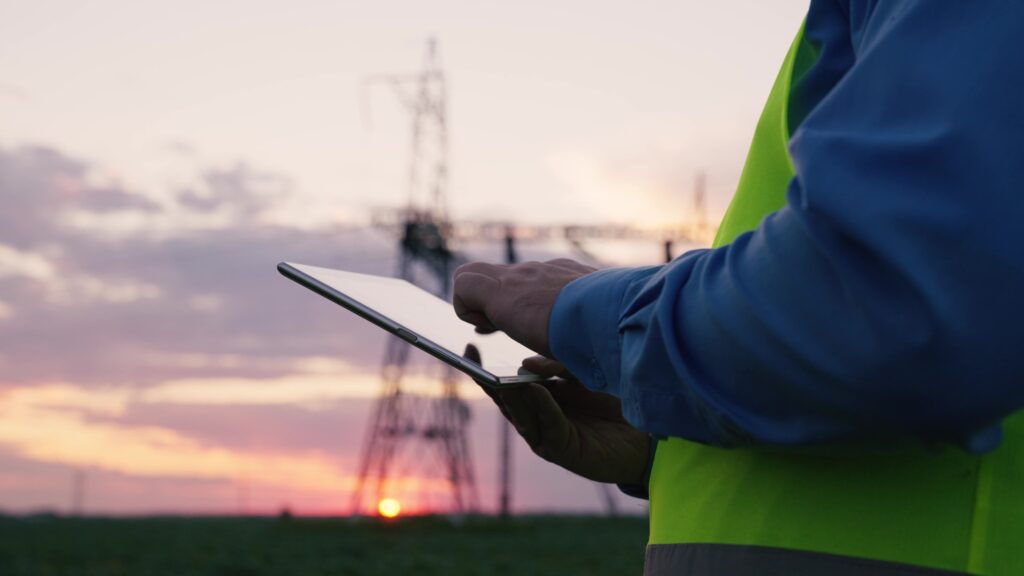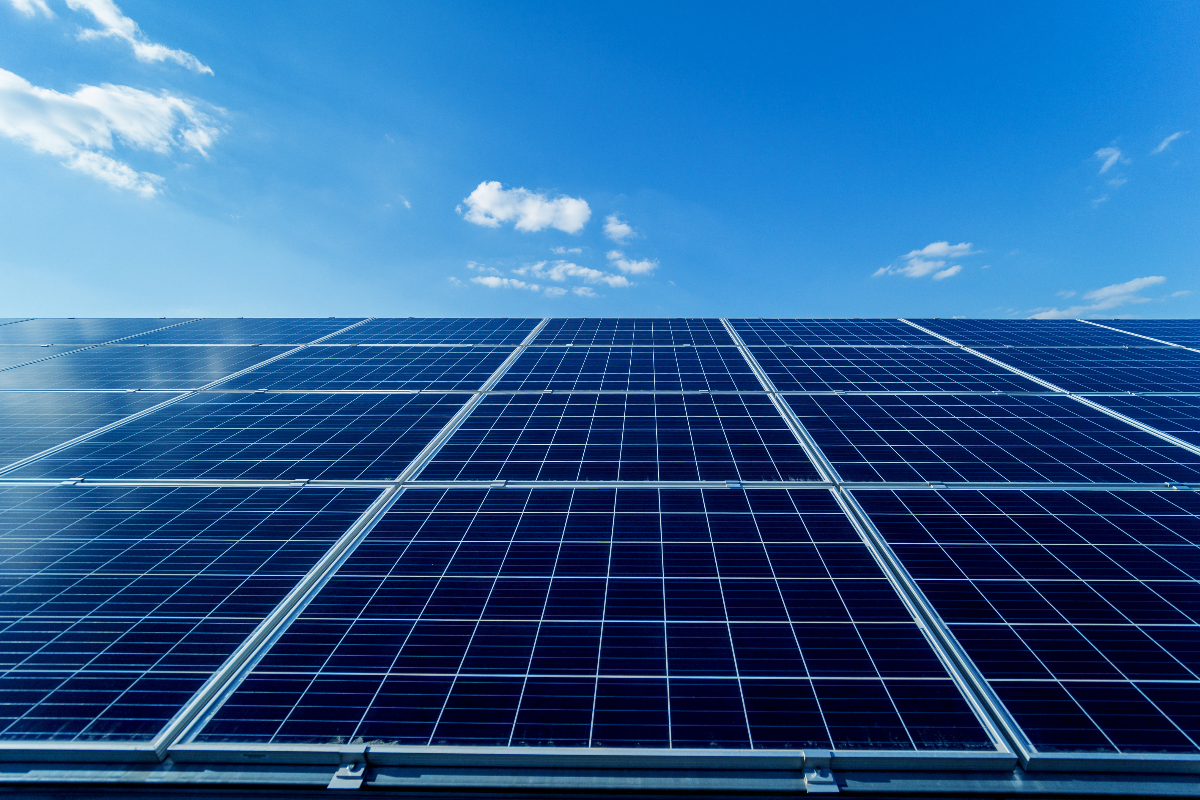NEWS
Installing Solar Panels: What your business needs to know
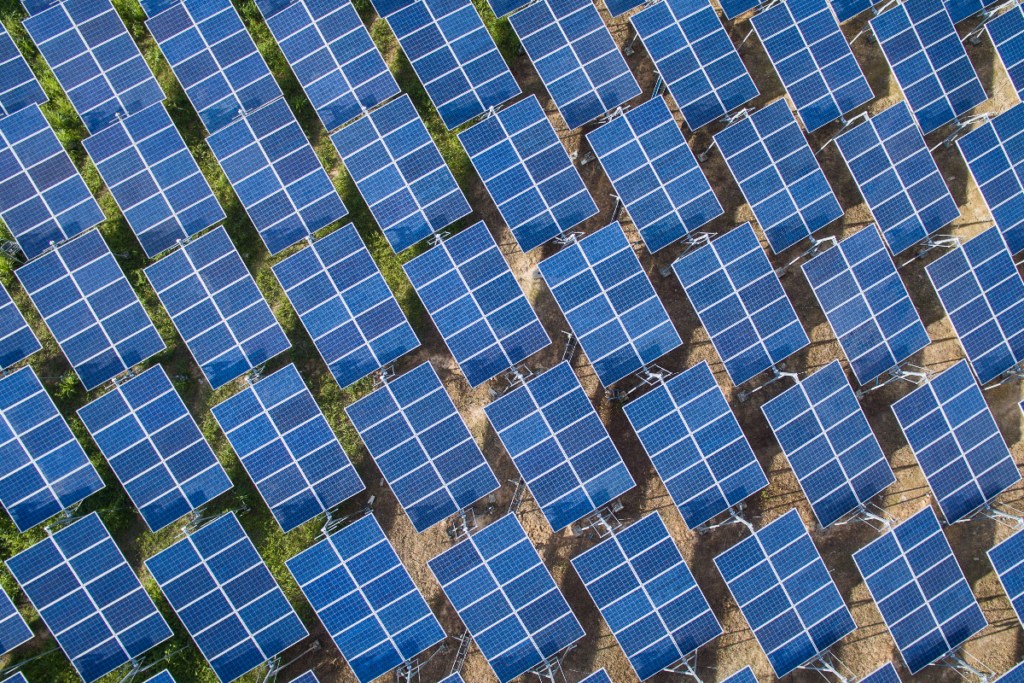
With the push for more renewable energy sources in the need to be green, more and more businesses are looking to generate their own electricity. The most common way for businesses to do this? Solar PV Panels. But what do you need to know before you begin installing solar panels on your sites.
What type of solar panels are available?
There are a couple different types of solar panels, depending on your site’s requirements and size.
- Ground mounted: This type of solar panel is best for businesses that have quite a lot of land space or an area to create a ‘solar farm’. These are attached to a metal ‘A-Frame’ that is fixed to a concrete base or pole. It’s important to take into consideration that you might need to apply for planning permission, if the panels are more than 4m high, if they face a highway or are visible from a conservation area or world heritage site. You’ll also need planning permission if the site is bigger than 9m2.
- Roof mounted: These are the most common types of solar panels. If your site has a large roof space, then this is probably the best type of solar panel for your business. You may still need planning permission for roof mounted solar panels. However, since April 2015, most non-domestic solar installations under 1 megawatt are classed as permitted development by regulations. However, they will still need to meet regulatory requirements.
Want to learn more about Flame Energy’s renewable energy options? Click the link below!
- Monocrystalline: These are the most popular type of solar cells with the highest level of efficiency on the market. These usually sit at 15-20% efficiency. Because of these high levels of efficiency, they require a lot less space than other cells. They also perform better in low levels of sunlight – making them perfect for the UK’s notorious cloudy weather. However, they are the most expensive type on the market and can sometimes have lower performance levels when there’s an increase in temperature.
- Polycrystalline: These are usually cheaper than monocrystalline cells, but their efficiency is a lot lower. To create these, silicon crystals are melted together. There’s a high level of crystals per cell so the electrons have little space to move about, so they produce less energy. These are usually a more common choice for domestic solar panels due to their costs.
- Solar car ports: These are a more modern typeof solar panels. These are steel structures that provide shelter for cars in car parks with solar panels installed on the roof of the structure. These can also be attached to EV charging stations to provide a charging option too. This is a great way to show your commitment to sustainability to anyone who might be using your car park.
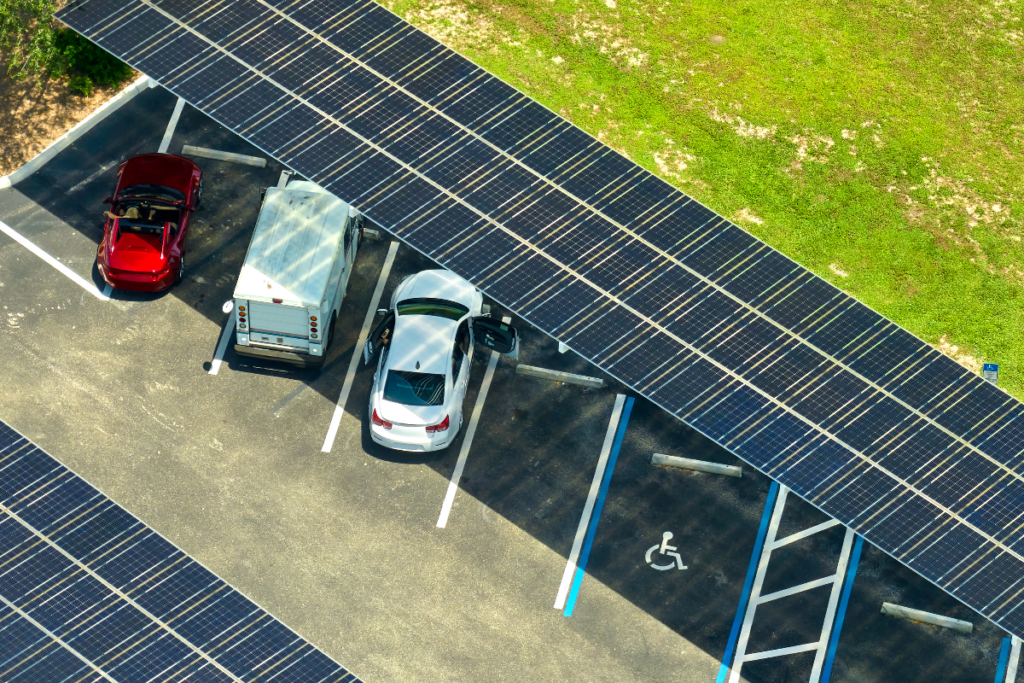
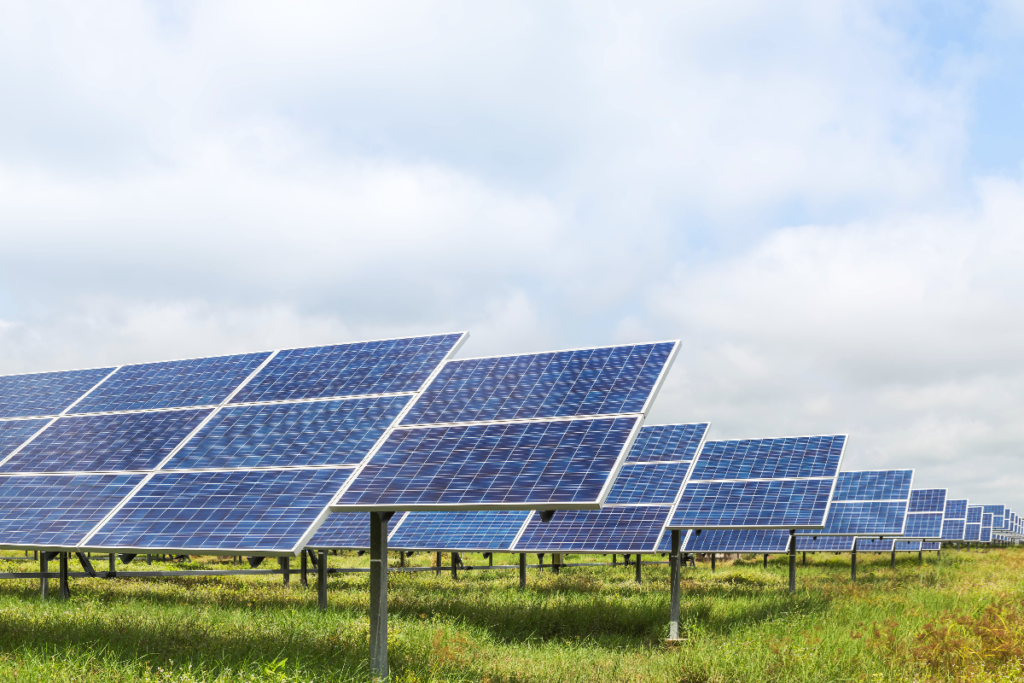
How many solar panels will I need?
Every business has different requirements. The number of solar panels you’ll need to install will depend on the size of your business premises and how much you’re wanting to offset. You’ll also need to consider how much sunlight you get in your area.
How much will installing solar panels cost?
Similar to the number of solar panels you’ll need, the cost will also vary depending on different factors. For example, the quality of the panels, number and type will all factor into the price. If your site is looking to have around 1,700 PV modules installed, the cost is likely to be around £700,000. However, this won’t include the price of battery storage to allow you to save energy for when there’s no sunlight. You’ll also need to factor in the price of maintenance for your system. It’s recommended that your solar panels are cleaned every six months to keep efficiency high.
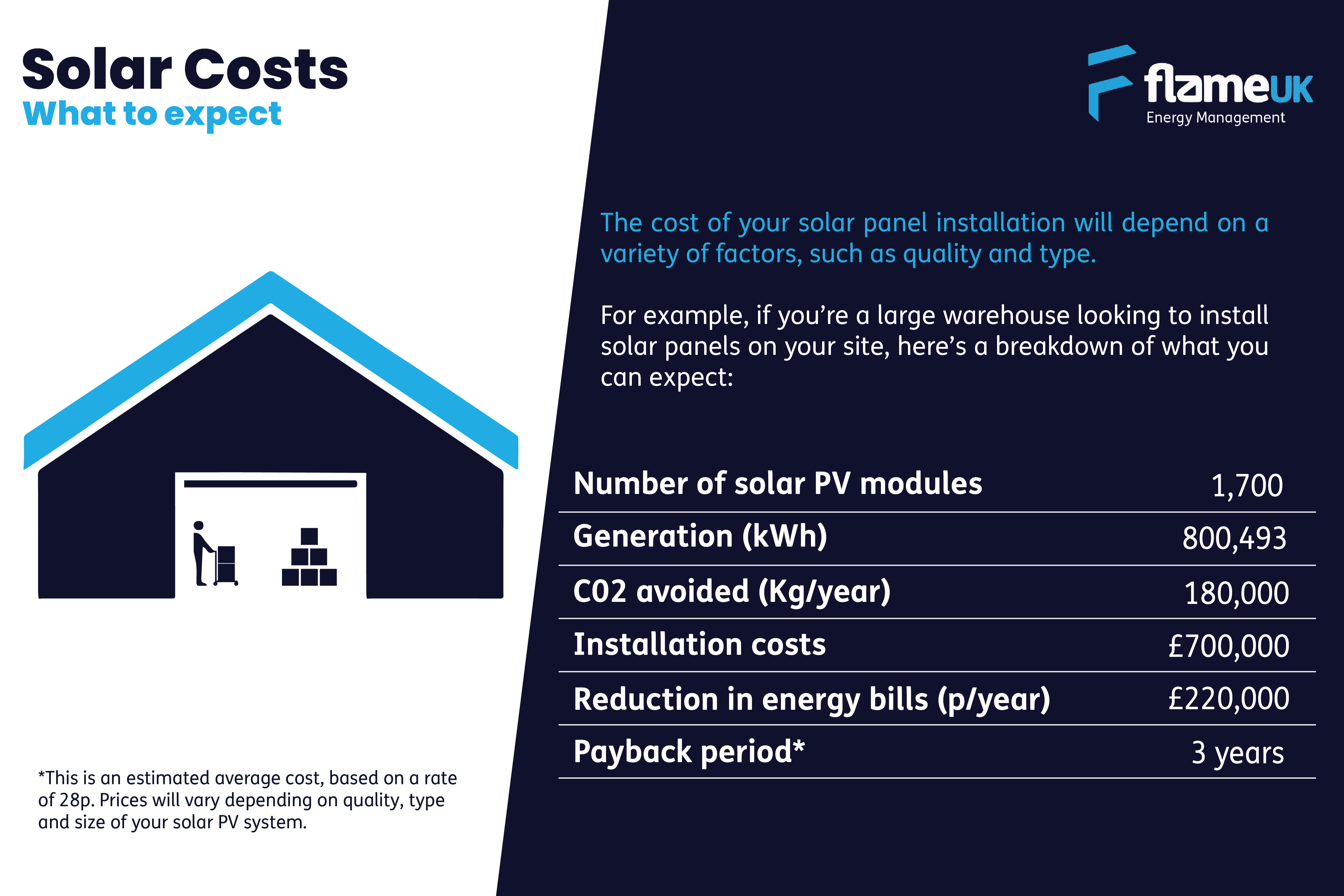
What’s the ROI for installing solar panels?
The Return on Investment for a business looking to install solar panels will vary depending on different factors. For a larger scale business, with around 1,700 PV modules, you’re going to be looking at around £700,000 for the full installation process. But, if your energy rates sit at the average of 28p, you could see a payback period of just over three years – which is incredibly shorter than most investments. You could also see a reduction in your energy bills of around £220,000 each year. However, this is all case by case as every business will have a different system with different contracts. The higher your energy rate, the quicker your payback period is.
How does installing solar panels make your business more sustainable?
If your business is looking to reduce its Scope 2 emissions, installing solar panels is a great way to go. Generating your own electricity is a clean and renewable alternative to using traditional energy sources, such as fossil fuels – cutting your impact on the environment. Generating solar electricity does not produce any greenhouse gas emissions, meaning that it doesn’t contribute to global warming and air pollution. For example, the larger scale business mentioned previously would see around 180,000 kg of CO2 avoided each year. So, generating your own renewable energy can help to reduce your business’ impact on the environment and work towards your sustainability targets.
Contact us
Looking to increase your business’ sustainability credentials by installing solar panels on your sites? Our team of experts are on hand to guide you through the process. Get in touch today to find out more about how Flame Energy can support your business.
